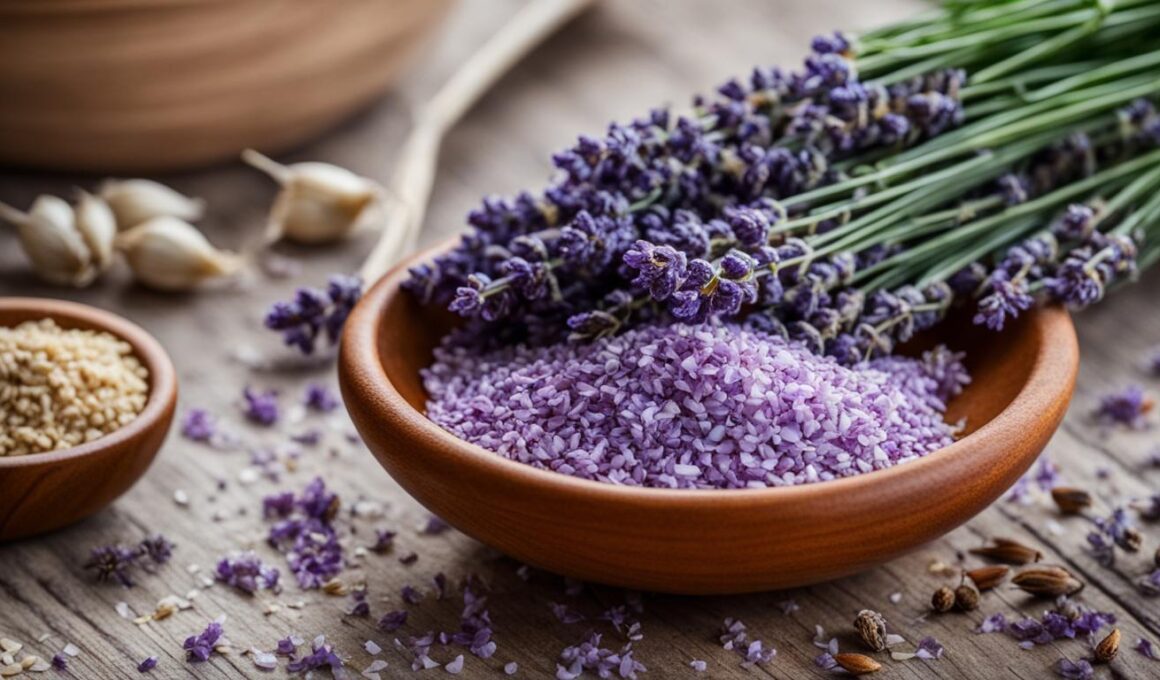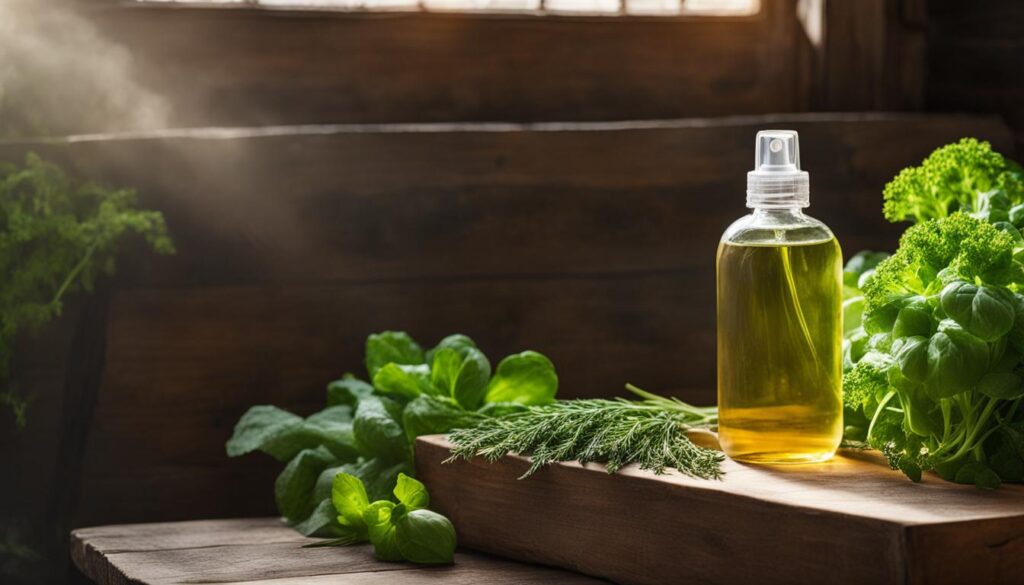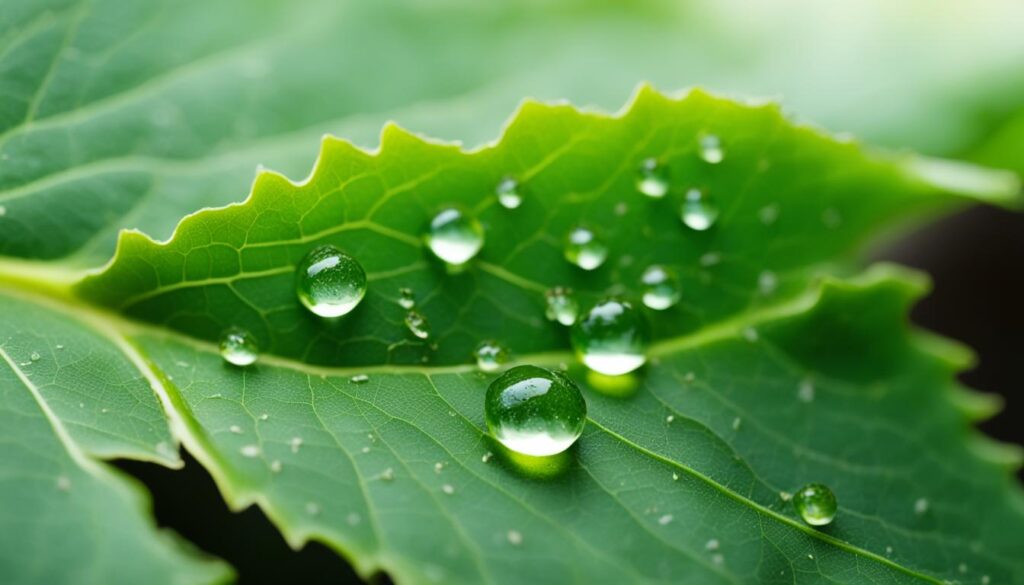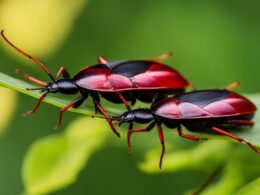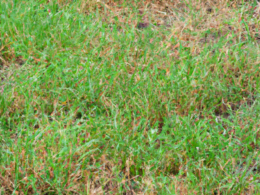Are pests wreaking havoc on your garden? Don’t worry, we’ve got you covered. In this article, you’ll discover the secrets to creating homemade bug repellent that is not only effective but also natural and sustainable. Say goodbye to harmful chemical insecticides and hello to a thriving, eco-friendly garden.
Homemade bug sprays are a fantastic alternative to commercial insecticides for gardens. Using common ingredients found in your store cupboard, you can create powerful sprays that combat pests such as aphids, mites, and thrips. These homemade sprays aim to establish a healthy ecosystem in your garden rather than eliminating all insects. By incorporating companion planting and plant diversity, you can further reduce the need for insecticides in your garden, making it a sustainable haven for plants and beneficial insects alike.
Key Takeaways:
- Homemade bug sprays are effective alternatives to commercial insecticides.
- They are made from common ingredients found in your store cupboard.
- These sprays create a healthy ecosystem in your garden.
- Incorporating companion planting and plant diversity can further reduce the need for insecticides.
- By using homemade bug sprays, you can keep your garden pest-free without harming the environment.
Homemade Insecticidal Soap
If you’re looking for a homemade bug spray that is effective against a wide range of pests, then insecticidal soap is a great option. This natural solution can help you control pests like aphids, lacebugs, and mealybugs without resorting to harsh chemicals. Plus, you can easily make it using common household ingredients.
To create your own insecticidal soap, you’ll need vegetable oil, dishwashing soap, or pure Castile liquid soap. Mix one cup of vegetable oil with one tablespoon of soap and dilute one teaspoon of this mixture with two cups of warm water. This simple recipe allows you to make a short-term pest control solution that can be sprayed onto the affected plants.
“Insecticidal soap is a safe and effective option for controlling pests in your garden. It works by suffocating the insects, disrupting their cell membranes, and ultimately causing their demise.”
Remember to only use insecticidal soap as a short-term solution, as excessive use can harm beneficial insects. It’s also important to test the solution on a small section of the plant before applying it to the entire plant, as some plants may be sensitive to the soap. With regular use and proper application, homemade insecticidal soap can help you keep your garden free from unwanted pests.
Advantages of Homemade Insecticidal Soap
- Safe and non-toxic: Insecticidal soap is a natural alternative to chemical-based insecticides, making it safer for the environment and your health.
- Effective against many pests: This homemade bug spray can help control a wide range of common garden pests, including aphids, lacebugs, and mealybugs.
- Easy to make: You can create your own insecticidal soap using ingredients like vegetable oil, dishwashing soap, or pure Castile liquid soap.
- Short-term solution: Insecticidal soap is ideal for temporary pest control, allowing you to address infestations without long-term chemical exposure.
By using homemade insecticidal soap, you can take control of pests in your garden while minimizing the use of harmful chemicals. Remember to always follow the instructions and use it responsibly to keep your garden healthy and thriving.
Neem Oil Bug Spray
Neem oil is an organic insecticide that has been used for centuries to control pests in gardens. It is derived from the seeds of the neem tree and contains compounds that repel and disrupt the life cycle of insects. Neem oil is effective against a wide range of pests, including mites, whitefly, aphids, and powdery mildew.
To make neem oil bug spray, mix one to two tablespoons of pure, cold-pressed neem oil with a gallon of water. You can add one to two teaspoons of dish soap to help the neem oil adhere to the plants. This spray can be applied to the tops and undersides of leaves, as well as used as a root soak for treating root rot.
Neem oil works by disrupting the feeding and reproductive systems of insects, making it an effective and natural insecticide. It is important to note that neem oil should be used sparingly and only when necessary, as it can also harm beneficial insects like bees and butterflies.
Mites:
Mites are tiny arachnids that feed on the sap of plants and can cause damage to leaves, fruits, and flowers. Neem oil is effective in controlling mite infestations by suffocating and repelling them. Regular application of neem oil can help prevent mites from damaging your plants.
Whitefly and Aphids:
Whiteflies and aphids are common garden pests that feed on the sap of plants and can quickly multiply and infest your garden. Neem oil can be used to control these pests by interfering with their feeding and reproductive processes. Regularly spraying neem oil on affected plants can help reduce whitefly and aphid populations.
Powdery Mildew:
Powdery mildew is a fungal disease that affects a wide range of plants, leaving a white powdery coating on leaves and stems. Neem oil can be used as a preventive measure by applying it to susceptible plants before the onset of powdery mildew. It can also be used to treat existing infestations by spraying the affected plants.
Vinegar Spray
Vinegar is a versatile and effective natural bug spray that can help you tackle common garden pests. With its acidic properties, white vinegar is a powerful solution to control the infestation of unwanted insects in your plants. It contains acetic acid, which acts as a contact pesticide, making it a suitable choice for dealing with various garden pests.
To create a vinegar spray, simply mix one cup of white vinegar with three cups of water. This dilution ensures that the vinegar is not too strong and won’t harm your plants. For better adherence to the pests and plant surfaces, you can add half a teaspoon of dishwashing soap to the mixture.
When applying the vinegar spray, be sure to target the undersides of leaves, as many garden pests, like whiteflies, lay their eggs there. The strong odor of vinegar also acts as a natural deterrent for ants and other scent-driven pests. Regularly spraying your plants with vinegar solution can help keep them healthy and protected from common garden pests.
Benefits of Using Vinegar Spray:
- Effective against a wide range of garden pests
- Environmentally friendly and non-toxic
- Readily available and affordable
- Easy to make at home
- Repels ants and scent-driven pests
“Vinegar spray is a natural and cost-effective solution for controlling garden pests without resorting to harmful chemicals.” – Gardening Expert
Important Considerations:
- Test the vinegar spray on a small portion of the plant before applying it extensively to make sure there are no adverse effects.
- Avoid using vinegar spray on delicate or acid-sensitive plants, as it may damage them.
- Apply the spray during cooler parts of the day to prevent any potential damage to the plants due to the sun’s heat.
Homemade Bug Spray: Repel Aphids, Slugs, and Carrot Fly with Garlic Spray
When it comes to repelling common garden pests like aphids, slugs, and carrot fly, homemade bug sprays can be a natural and effective solution. One such spray that you can easily make at home is garlic spray. Garlic has natural insect-repelling properties and can help protect your plants from these troublesome pests.
To make garlic spray, start by pureeing two garlic bulbs and one tablespoon of vegetable oil together. Let the mixture sit overnight to infuse the oil with the garlic’s repellent properties. The next day, strain the mixture and add one teaspoon of mild liquid soap and four cups of water. Mix well and store the garlic spray in the fridge until ready to use.
When applying garlic spray to your plants, it’s best to do so in the evening to avoid any adverse effects from the sun. It’s important to spray the foliage of affected plants thoroughly, making sure to cover both the tops and undersides of the leaves. For severe infestations, you may need to reapply the spray every few days until the pests are under control. For prevention, applying the spray every one to two weeks should suffice.
Benefits of Garlic Spray
- Repels aphids, slugs, and carrot fly: Garlic’s strong odor acts as a natural deterrent to these common garden pests.
- Environmentally friendly: Homemade garlic spray is a sustainable alternative to chemical insecticides.
- Easy and cost-effective: Making garlic spray at home requires simple ingredients that are readily available and affordable.
By incorporating garlic spray into your pest management routine, you can protect your garden from aphids, slugs, and carrot fly while avoiding the use of harmful chemicals. Remember to always test the spray on a small area of your plant first to ensure it does not cause any damage, and keep in mind that prevention techniques like companion planting and plant diversity can also help in reducing the need for insecticides.
Conclusion
Homemade bug sprays provide an effective and sustainable alternative to commercial insecticides for gardens. By using ingredients like insecticidal soap, neem oil, vinegar, garlic, and natural repellents, you can control pests in your garden without harming the environment or compromising your health.
It’s important to remember that homemade bug sprays should be used as a short-term solution. In addition to bug sprays, prevention techniques like companion planting and plant diversity can further reduce the need for insecticides in your garden. These preventive measures create a healthy ecosystem where pests are naturally kept in check.
With the use of homemade bug sprays and preventive measures, you can keep your garden healthy and pest-free. Embrace the power of natural solutions to protect your plants and the environment.
Is Homemade Bug Repellent Safe and Effective for Plants in the Garden?
Yes, homemade bug repellent can be a safe and effective spray for plants in the garden. Ingredients like neem oil, garlic, and pepper are natural deterrents for pests and won’t harm your plants. Mix them with water and a little soap to create an effective spray for plants.
FAQ
Can homemade bug sprays harm beneficial insects in my garden?
Homemade bug sprays are designed to create a healthy ecosystem in your garden by targeting specific pests. While they may affect some beneficial insects, using these sprays in moderation and focusing on targeted application can help minimize harm to beneficial insects.
How often should I apply homemade bug sprays?
The frequency of application depends on the severity of the infestation. For minor infestations, spraying every few days may be sufficient. For more persistent or severe infestations, spraying once every one to two weeks may be necessary. Always follow the instructions for each specific homemade bug spray.
Are homemade bug sprays safe for edible plants?
Most homemade bug sprays are safe for edible plants when used in moderation. However, it is always recommended to wash your produce thoroughly before consuming. If you have any concerns, it’s best to consult with a local gardening expert or extension service for specific guidance.
Can I make homemade bug sprays from ingredients in my kitchen?
Yes, many homemade bug sprays can be made using common ingredients found in your kitchen. Items like vegetable oil, dishwashing soap, vinegar, and garlic are often used in homemade bug sprays. Always refer to specific recipes and instructions for accurate measurements and usage guidelines.
Do homemade bug sprays work as well as commercial insecticides?
Homemade bug sprays can be effective in controlling certain pests in your garden. However, they may not have the same potency as commercial insecticides. It’s important to properly identify the pest and select the appropriate homemade spray for optimal results.
Can I use homemade bug sprays indoors?
Homemade bug sprays are primarily designed for outdoor use in gardens. While some sprays may be used indoors, it’s essential to consider ventilation, potential damage to indoor surfaces, and the safety of individuals and pets in the home. Always exercise caution when using any type of insecticide indoors.





